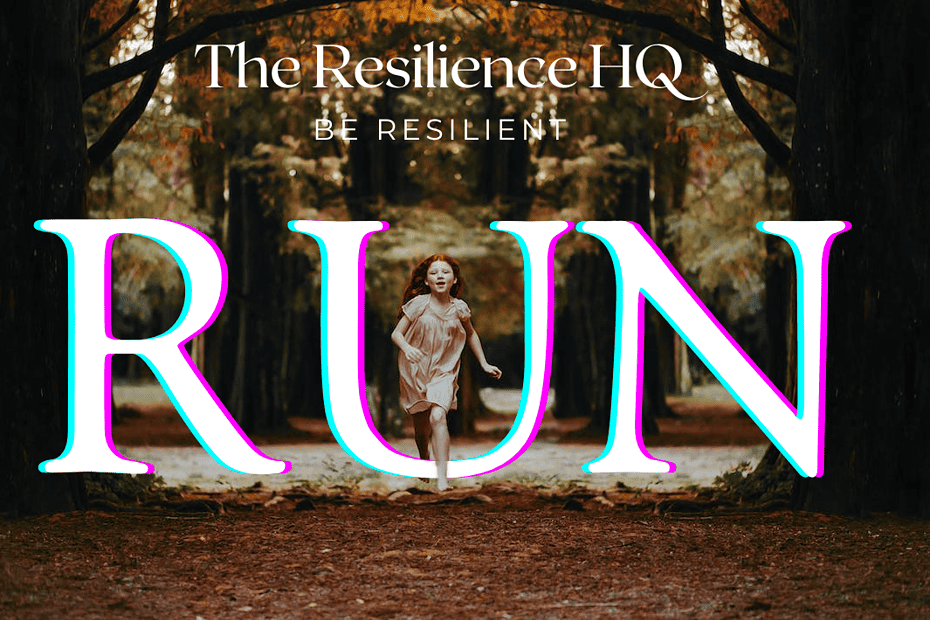Everyone knows that it is important, (No! ESSENTIAL) to exercise regularly but how many people do it? Everyone knows that it is beneficial to us but why are millions of children and adults overweight and even obese? We must realise through this process of understanding these questions is that as humans, we do not act rationally. This can be a source of frustration when attempting to resolve conflict between friends or family members. The problem may seem straightforward but the reality is that we are emotional beings and most of us act emotionally. That is, we do not always act rationally. Choice of doing exercise or not, is no different. We choose emotionally and ignore the rationality. I do not FEEL like running, I don’t have time to do exercise, whilst watching Netflix for an hour, or worse still the dreaded news on TV/phone, on repeat!
What hinders this state of progressing from the knowledge of “doing exercise is essential” to going out and acting on this thought is often the confusion, perceived obstacles and lack of clarity on what exactly to do. What is minimal amount, what type of exercise and what intensity is enough? Should I do Yoga or cardio? Should I do weights or running? What about swimming or cycling? The choices are endless and this abundance of choice feeds the inactivity through confusion. In this post, I shall attempt to simplify all this, use research and evidence to justify my simplicity and offer easy to action steps.
Different exercises
It is helpful to put all exercises into four broad categories. Endurance, strength, balance and flexibility. In an ideal world we would do some sort of mixture of these four types in our exercise routines. For the beginner, the hesitant person who thinks it is all too complex and difficult, it is important to point out that it does NOT matter what exercise you start with. Just pick one based on what interests you, available in your local area, suits your budget and START. Do not let mine or anyone else’s preference hinder your journey to start exercising.
What type of exercise gives the most value in short space of time with low effort and suits wide range of people? My personal opinion is that exercise from the endurance category fits this criteria for most people and especially for the beginners. From the endurance category, running is the most widely used and easily available exercise.
What is endurance exercise?
Endurance exercises increase your breathing, heart rate and makes you fatigue. The basic principle of endurance exercise is that you push the body above what it is comfortable for it to maintain body’s homeostasis. It then has to adapt by increasing breathing and heart rate along with numerous other hormonal, molecular and cellular regulation. All these adaptations lead to body being able to delay the onset of fatigue. So the same uphill fast walk that you struggled with on day one of exercise, would become easy after a few days or weeks of repeating. You won’t be as breathless or tired as you were on the first day- your body has just adapted in delaying the onset of fatigue. Congratulations!
Examples of endurance exercise
- Walking briskly
- Jogging, running
- Cycling
- Skipping rope
- Swimming
- Dancing
- Climbing stairs or walking up slopes
These are also called aerobic exercises. There is ample evidence that they lead to keeping your heart & lung healthy and improve overall fitness, as well as immune system. In the long term, they can reduce the risk of many diseases including heart diseases, stroke and diabetes.
How much do I need to do?
American Heart Association recommends at least 150 minutes per week of moderate-intensity aerobic (endurance) exercise, spread through the week. Easy way of remembering is 30 minutes a day for 5 days a week. For further details and inforgraphic use this link.
Running benefits
One of the most common endurance exercises that is practiced worldwide is running. All of us have done it some point, even if only at school and it is the easiest way to get started on your fitness journey. It has been linked with numerous benefits but here are a few to reinforce the inner voice that may be stopping or encouraging you to start running.
Running improves sleep and psychological functioning

This study in adolescents, demonstrated clearly that 30 minutes of daily morning running for only 3 weeks led to improvement in sleep and psychological functioning (mood, concentration etc). If such a powerful improvement can be noted in only 3 weeks, imagine effects if we make running a normal part of our routine.
If your inner voice is questioning this and making excuses not to start running then just accept this voice and decide whether this is something you’d like to achieve at some point in the future? Perhaps you don’t think you can run, slow jogging will suffice for now. Perhaps you have medical condition preventing you from running, walking will do. Key strategy to recommend is to just start. Run or walk as slow as you need to, as little distance as you can manage but do something. One day, this something will add up to very big and positive effect.
Improvement in mood and wellbeing
Running has shown in studies to lead to improvement in mood and overall wellbeing. This systemic review collated data from many studies which means that these results are reliable. Anyone who runs regularly can attest to this fact.
If you don’t believe me, just try running regularly for a few weeks and test out this statement for yourself! This effect is so powerful that National Institute for Health and Care Excellence (NICE) recommends group exercise (aerobic exercise) as one of the treatments for depression.
Running can improve learning and memory

Paper by Jachim et al in 2020 highlighted the mechanisms by which endurance exercises benefit structure and function of the brain regions involved in learning and memory. They described various mechanisms behind this including factors that lead to cellular and molecular effects, thereby improving these critical cognitive functions. They showed that endurance exercises cause energetic stress and this leads to stimulation of neurogenesis (production of new nerve cells) and neuroplasticity (growth, reshaping and reorganising of neural networks). It is linked with countering of age-related changes in the brain.
It seems that endurance exercises (e.g. running) helps reverse, or at least slows down ageing of the brain and can improve learning and memory.
Jogging effects stress and life dissatisfaction
So, you’re still not convinced? Is that why you are still reading and not lacing up your running shoes? I’ve go you covered. Here is an offer your inner voice surely cannot resist!
This Copenhagen City Heart Study involved over 12 thousand men and women of the ages 20-79. This is a very large research study and results would be very powerful indeed. It showed that people who jog in their leisure time experienced reduced stress. Increasing jogging time was related to reducing stress levels. This is not all. Increasing activity level was also related to decrease in life dissatisfaction. Most of the beneficial effects were in the group who did low to moderate level of exercise, for example 2-4 hours of walking per week.
Did I mention that this group also had 30% lower risk of death compared to inactive people?
Surely, your inner voice can stop nagging you for this tiny amount of exercise. 2 hours walk per week in leisure time sounds very easy, doesn’t it? I can guarantee you that once you start doing this regularly, you would want to walk for longer and even start jogging. This is the benefit of taking action, no matter how small.
Small actions lead to bigger actions but no action leads to procrastination.
AQ
Resilience
Recall that we need stress to reveal and develop our resilience. Healthy body and healthy mind are related and we not only need to develop psychological resilience by coping with stressful situations but our bodies also need to be exposed to stress to build physical resilience. We can see from research mentioned above that stress from exercise, running for example, leads to many different physical and psychological benefits. Feeling happier, feeling less dissatisfied and slowing down mental ageing process, improving memory and learning all contribute to our psychological resilience. With regular exercise our body becomes more resilient to physical problems (reduced death rate, improved sleep etc). This is likely to translate into better capacity to deal with physical illnesses, including infections.
Exercises is clearly linked with resilience and we need to think of resilience as a comprehensive strategy to improve our life in any domain. These can be psychological, physical, financial, relationship, occupational or any other area you can think of. Psychological resilience cannot be gained in isolation from physical resilience.
How to use this information in your life?
Understand:
- First remember that psychological and physical resilience are linked.
- Remember that stress is needed to reveal and build resilience
- There are four major categories of exercises but if we are to take short cuts then endurance exercises (aerobic) can give more benefit in shorter time
- Running as a type of endurance exercise is quick and more accessible way to get started with exercise.
Get started:
- Start TODAY. No equipment is needed, no gym membership is needed, only a space to run. No! You do not need to wait til you do research and buy those fancy running trainers!
- Start LOW, go SLOW. Start with low aim in the beginning to get used to doing exercise. Then increase as you get used to it. Do slow runs, jog or walk depending on your ability and do this regularly, about 3 times a week.
- Don’t over do it. Do this for as long distance as you can comfortably manage at first.
- Build up as it gets easier. As you do this activity, it will feel easier over time. As soon as this happens, increase difficulty level (faster, longer, use hills or incline etc).
- The social aspect. Convince (cajole) your family, friends or colleagues to do this together. The social aspect of it can make it easier to motivate yourself to do it regularly. Why not walk and talk?
- Work walking culture. Why not start a walking culture at work? Perhaps go for walk with work colleagues during break.
- Link it to a pre existing activity. To make it even easier, link walking with a meal. Go for a walk with family or alone straight after meal on a daily basis. Once you do this for a few weeks, it will become automatic habit and effortless.
- Beware of the inner voice. if it tries to sabotage your plans. Don’t fight it! Listen to it, accept it and reply back that you’re only going to do small amount of exercise now, then get out and do this. Once you are out, you may feel like doing more. Even if you only do small amount, something is better than nothing!
- Share with others. Share your journey, struggles and achievements with others. Who knows, you may encourage others to do the same and when you struggle they may motivate you.

Did you know all of this already and are you a seasoned runner and do regular exercise? Congratulations! I hope this post was a reminder to you that not everyone is in the same stage of the journey as you are.
I hope this post will help you connect better with your family, friends or colleagues who you have been trying to encourage to start exercising. Why not use some of the findings from research and tips on how to get started and try to encourage them again.
Please share below any tips of your own.
Thank You.
AQ